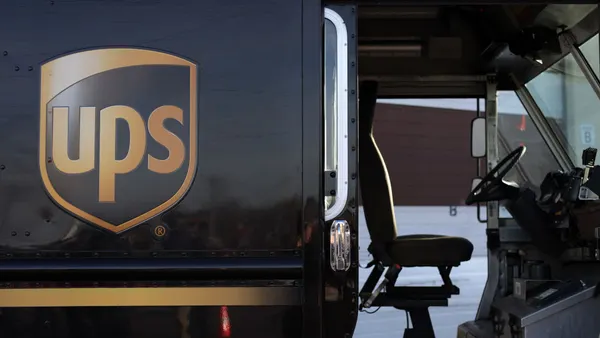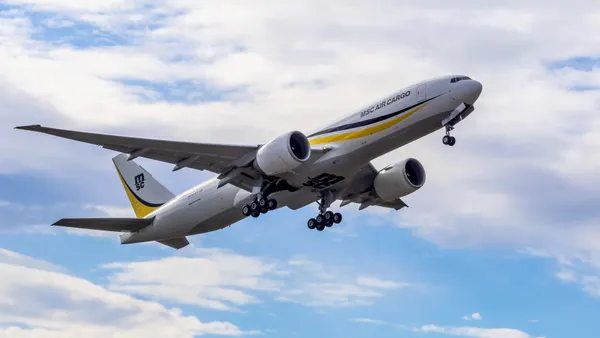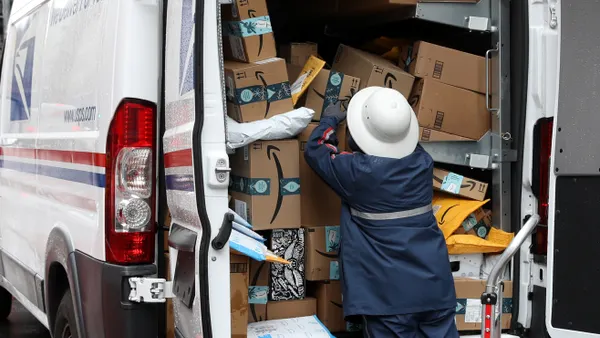Dive Brief:
- The demand to ship fresh food overseas is twice as strong as for other items, according to The Wall Street Journal, quoting Drewry Shipping Consultants. That means more refrigerated containers called "reefers" are needed to safely send fresh produce, seafood and other items across the oceans.
- Although reefers comprise just 7% of total container volume, demand for them has jumped by 5% to 6% each year over the past five years — versus 2% to 3% for regular containers, Drewry noted.
- The trend is driven by the rising middle class in Asia and elsewhere, which is better able to afford imported — and more expensive — foods and beverages.
Dive Insight:
Cold shipping is particularly critical for smaller companies that can't afford to pay for large refrigerated sections on container ships.
With the availability of controlled-atmosphere reefers, however, a smaller produce company in South America is able to ship product to the U.S. or Europe and have it arrive in good shape as much as 18 days later, the WSJ reported. Consumers in the U.S. and elsewhere expect to have these items available year-round instead of only on a seasonal basis, and retailers want to be able to offer them to keep shoppers coming back.
Fresh produce — like fruits, meat and seafood — is particularly dependent on cold shipping and storage in order to retain value during and after transportation. Retailers also take advantage of the cold chain to bring in exotic products, like papayas, star fruit and guava, that can help build a loyal customer base in a competitive marketplace as shoppers seek out new foods.
Exotic or not, available, fresh produce is typically part of the store perimeter where sales are highest, and is a consistent revenue stream for grocers — revenue that is pivotal to offset rising costs.
Food makers and retailers have recently been contending with product shortages, delivery delays and higher prices. Transportation and distribution costs are increasingly being singled out in earnings reports, including Campbell Soup, SpartanNash and B&G Foods. As trucks are more scarce, trains are longer, and ports are congested, refrigerated containers can at least keep items colder for longer, providing a stopgap solution to the industry's logistical problems.
Reefers can also help U.S. food exports which, according to The Balance, comprise 9% of all goods shipped to other nations.
While some new export deals have been approved, including U.S. pork shipments to Argentina, the U.S. Department of Agriculture's Economic Research Service found that the value of agricultural exports declined in 2015 to be worth $133 billion. With a Chinese trade war in the beginning stages, exports may be cooling even more.













